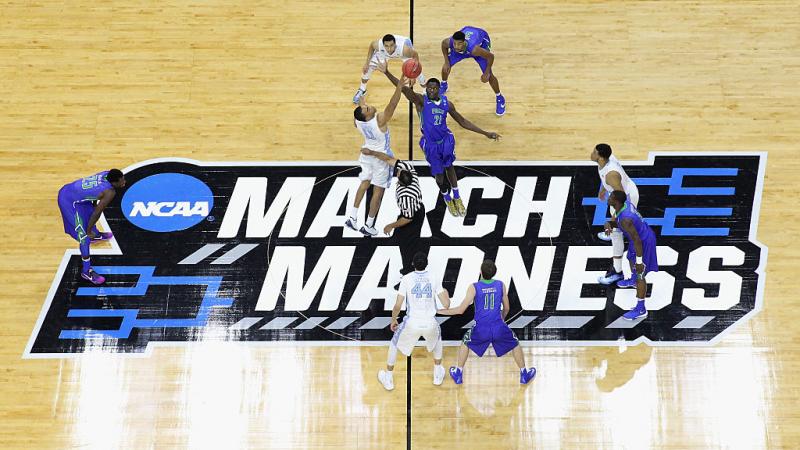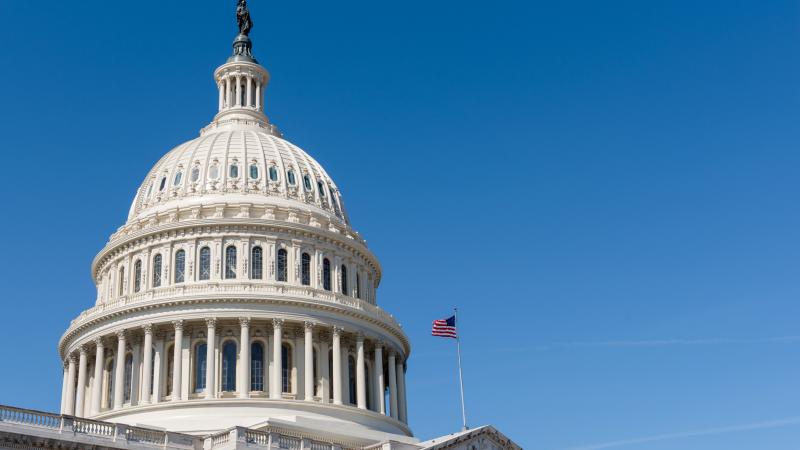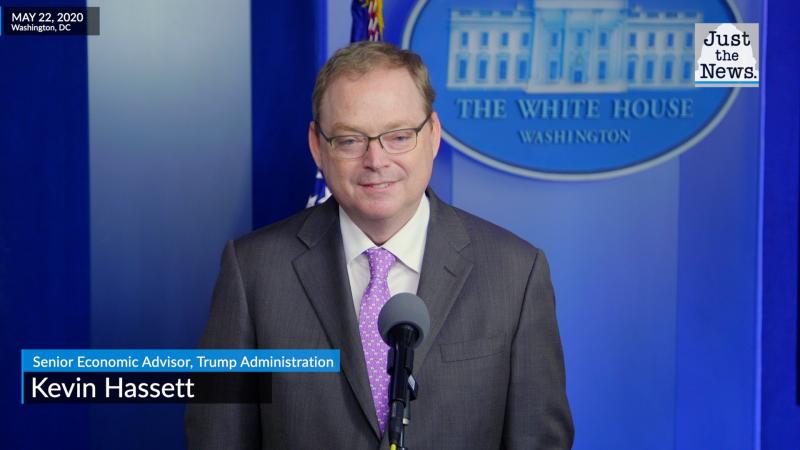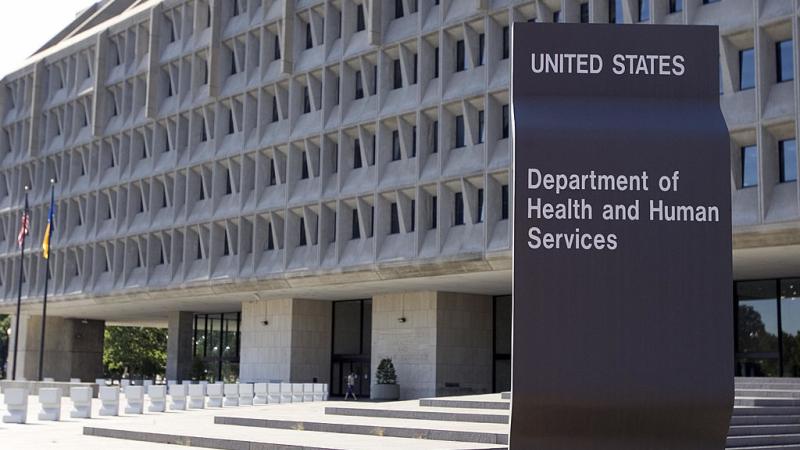Dinesh D'Souza's 'Trump Card' savages Democrats for perceived hard-left turn
The conservative "think tank guy"-turned-filmmaker's latest docudrama, timed for maximum election year impact, is based on his recent book, "United States of Socialism."
Dinesh D'Souza took a page from Michael Moore's progressive playbook, and he's yet to look back.
The self-described "think tank guy" once shared his conservative views on college campuses and via a series of popular books.
"I almost stumbled into movies," D'Souza says, looking back at his unlikely transition.
Fortuitous ties to filmmaker John Sullivan and TD Ameritrade founder Joe Ricketts led to "2016: Obama's America," in which the scholarly D'Souza — in the Moore tradition — personally guided viewers through the president's formative years.
A documentary star was born.
That 2012 film, directed by D'Souza and Sullivan, earned $33 million at the U.S. box office, a mint for political documentaries. Only Michael Moore's "Fahrenheit 9/11" has earned more in that subgenre.
D'Souza's subsequent movies, "America: Imagine the World Without Her," "Hillary's America" and "Death of a Nation" earned increasingly smaller amounts, but each represented sizable successes for the genre.
D'Souza credits his lean filmmaking team for his unlikely success, from the creative side to marketing 101. The latter is something Moore doesn't require when he peddles a new feature, D'Souza argues.
"He doesn't have to create an LLC to organize a movie," he says. "All the publicity doors open naturally. He's on CBS, 'The View.' He gets enormous coverage and devotional coverage."
D'Souza knows he lacks Moore's comic chops, which means he must lean on his strong social media flock — 1.7 million followers on Twitter alone — and a "coterie of devoted and committed investors."
D'Souza's latest docudrama, timed for maximum election year impact, is "Trump Card." The film bears all the markings of a D'Souza project. Based on his recent book "United States of Socialism," "Trump Card" savages the modern Democratic party for what he sees as its hard-left turn.
Available on VOD Oct. 9, the film makes little pretense to being "fair and balanced." This is advocacy filmmaking a la Moore's own approach to the genre.
The film puts D'Souza front and center once more, letting him use his personal arc to humanize his political perspectives. It also feels up to date, with sequences referencing the current pandemic and Joe Biden's "You ain't black" gaffe, which the former vice president quickly walked back.
"We do our best to keep the film very timely, ripped right out of the headlines," D'Souza says. "We had the ability to edit to the last minute possible so we don't miss something big."
Both "Trump Card" and "Death of a Nation" praise President Donald Trump's time in the Oval Office, but D'Souza wasn't sporting a red hat during the 2016 presidential primaries.
"I was not an early Trump guy," says D'Souza, who was married in 2016 by Rafael Cruz, father of 2016 presidential hopeful Texas GOP Sen. Ted Cruz. The filmmaker threw his support behind the brash real estate mogul once the primary smoke cleared, and he's an unabashed supporter now.
D'Souza has another reason to cheer the president. Trump pardoned him two years ago in connection to a 2014 conviction for making illegal campaign contributions to Republican Senate candidate Wendy Long, a college friend of D'Souza's.
"What they did to him was horrible," Trump said at the time about D'Souza, who completed an eight-month sentence in a halfway house.
D'Souza later met President Trump and saw a side of him he didn't expect. The outspoken leader admitted the fire he faces from his critics "kind of gets to me," D'Souza recalls.
"He confessed that even though he takes a certain relish in the fight and believes in hitting back, he is disappointed that so many people think he's only in it for himself, the money, for his brand," he recalls.
D'Souza's recent box office results, while not as robust as those for his 2012 debut, loudly clash with his critical reception. RottenTomatoes.com scores for "Hillary's America" and "Death of a Nation," for example, stand at 4% and 0% "Rotten," respectively. Audiences were far kinder, grading them at 80% and 88%, respectively.
"I genuinely want to become a better filmmaker," D'Souza says, adding he's open to constructive criticism. He doesn't see that from his sharpest critics, who he argues dishonestly restate his themes in order to discredit them.
“The problem with D’Souza is he goes too far. He says the Democrats today are Nazis,” he says as a paraphrased example. If you cannot accurately describe a filmmaker's message, he argues, "You have failed at the simple task of criticism.”
"Trump Card" isn't a cinematic ode to the 45th president. D'Souza is selling the free market as the world's superior economic engine.
"Capitalism is the ladder of opportunity for the white working class as well as blacks, Latinos," he says. "Capitalism works for minorities."
D'Souza’s knack for successful documentaries likely paved the way for the current crop of right-leaning features, from Larry Elder's "Uncle Tom" to the upcoming documentary "The Plot Against the President."
D'Souza isn't surprised to see fellow conservatives pounce on the genre.
"Conservatives," he says, "are very good with social media, with interviews with the short format. They have the eye for visually compelling details, creating memes and threading those together in a format that's visually arresting."
Now, he'd like to spread out into narrative fiction.
D'Souza Media's "Infidel," released last month, delivered impressive box office results in an extremely downsized theatrical market. Jim Caviezel stars as a Christian blogger kidnapped after he shares some explosive views on faith during a Middle Eastern TV interview.
"I've never done a [narrative] feature film," before "Infidel," he says. "That's the gold standard for Hollywood."
The film "took on topics that Hollywood would not take on," adds D'Souza, saying major studios fear critiquing radical Islam on screen.
"It's not a movie in the Christian genre, but a mainstream political thriller that's gritty and immersed in the culture," he says.















